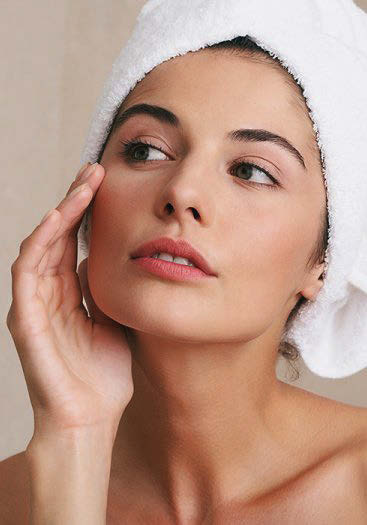
Not washing your face properly : It is important to use good medicated cleansers twice a day, but hard cleansers and washing too frequently can make the acne worse and face drier.
Using dairy products on a daily basis : Dairy products have abundance of hormone IGF 1 (Insulin-like growth factor 1) which is specially found in milk. It can cause inflammation in humans. Milk causes insulin spike in humans that makes the liver produce IGF 1. This can cause excess sebum production causing more clogged pores and thus, the acne. Try to reduce dairy product consumption.
Using smartphones too much : Smartphones are one of the common causes of breakouts. This is because when your phone is placed on skin while talking to someone, you press bacteria into your pores and ultimately, get pimples. So, use ear phones to keep a check on breakouts.
Applying body cream on face : Many body care products can give you acne on your face. Some people apply body products on their face to get some more beauty benefits. But it is better not to use body products on face. Feel free to use face cream on dry patch of body, but using a body lotion on your face could cause acne.
This could specifically be the case if your skin is sensitive and the facial lotion you generally use is oil and fragrance-free, and then you reach for a scented and thicker body lotion in the hope to achieve the same hydrating results.
Diet issue : Sweet food items may not always be good for skin. Diet rich in sugar or food with high glycemic index can be a cause for acne. Avoid sugar, carbohydrate-rich food and starch for acne-free skin. Eat small meals with diet rich in fruits and vegetables.
Here’s how you can choose your night cream smartly
Night time is when one’s skin gets the maximum rest, repair and time to rejuvenate. So always remember to wash and deep cleanse your face before you apply your night time moisturiser for the best results. But how do you decide what constitutes a good moisturiser? Divya Mehta, co-founder of skincare brand Epique, shares tips to keep in mind when deciding on a good night cream:
It doesn’t need to have the word ‘night’ to describe it : The difference between a night cream and any other is that it doesn’t have UV protection or any sunscreen ingredients in it. Hence you don’t necessarily need to use a cream that uses the word ‘night’ to define it. So long as the cream does not contain sunscreen, works well with your skin type and is rich in active ingredients, you are good to go!
High concentration of active ingredients : Look for components such as boswellia serrata, coffee bean extract, centella asiatica, andrographis, liquorice, coleus forskolin, horse chestnut, oils, vitamins like E and C and other antioxidants to name a few (in your night creme). In addition to these, actives need to be highly concentrated to address specific mature skin issues.
Deep penetrating and light weight in texture : Ensure the cream texture is light, penetrates deeply and is comfortable for your skin. Try avoiding creams that sit on the skin’s surface and don’t get absorbed well, causing the skin to feel oily.
Choose a night cream that is compatible with your skin type : This step may require some trial and error. Whether your skin is oily, dry or combination, there is a perfect solution for you out there. Find a moisturizer that is compatible with your specific skin type. Try testing the cream on the back of your hand before you buy it. The product should sink into your skin easily and leave a dewy look. That is a good sign that this cream may work well for you.





Be the first to comment